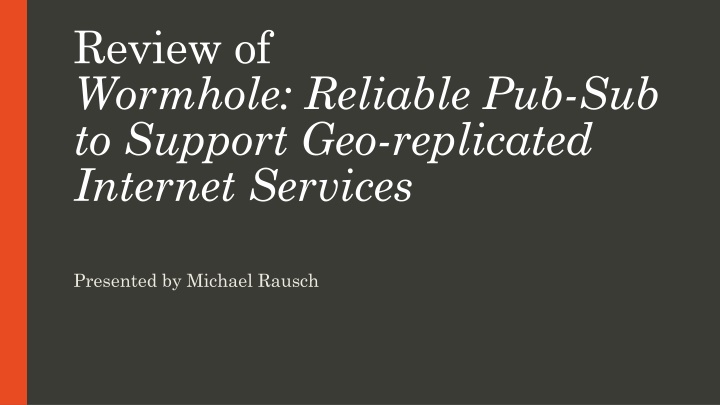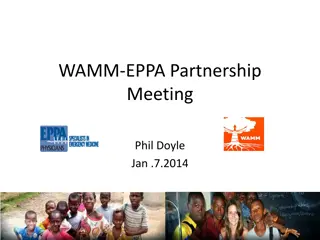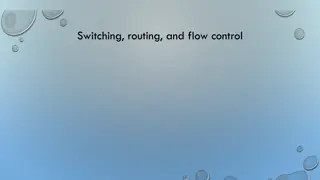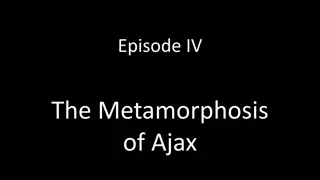
Review of Facebook's Wormhole: A Geo-replicated Pub-Sub System
"Explore the reliability and performance of Wormhole, Facebook's geo-replicated pub-sub system as presented by Michael Rausch. Learn about its pros, cons, and considerations for deployment, including handling updates, TCP vs. UDP, and failure scenarios."
Uploaded on | 3 Views
Download Presentation

Please find below an Image/Link to download the presentation.
The content on the website is provided AS IS for your information and personal use only. It may not be sold, licensed, or shared on other websites without obtaining consent from the author. If you encounter any issues during the download, it is possible that the publisher has removed the file from their server.
You are allowed to download the files provided on this website for personal or commercial use, subject to the condition that they are used lawfully. All files are the property of their respective owners.
The content on the website is provided AS IS for your information and personal use only. It may not be sold, licensed, or shared on other websites without obtaining consent from the author.
E N D
Presentation Transcript
Review of Wormhole: Reliable Pub-Sub to Support Geo-replicated Internet Services Presented by Michael Rausch
Summary Paper presented Wormhole, Facebook s reliable, high-throughput, low-latency, geo-replicated pub-sub system 2
Pros and Cons Pros Cons Pub-Sub system is failure-tolerant What is the research contribution? Can be deployed on existing data stores (MySQL, HDFS, RocksDB) Not Open Source Manage tradeoff between IO bandwidth and latency with caravans No confidence intervals in evaluation Transparency: Pub uses standard data format regardless of data store At-least-once vs exactly-once Subscriber cannot handle > 600k updates/sec ? Utilized at Facebook o35 GBytes/sec to 200 GBytes/sec o99.5% of updates < 100 ms oUsed for 3 years 3
Discussion Would it be better to compress all the updates that an application missed and deliver all at once? Could UDP be substituted for TCP? If the local data store fails, then the remote publisher pushes updates to the local subscriber. Compare this choice with the local publisher receiving data from the remote data store? What in the design limits this approach to Facebook? 4













